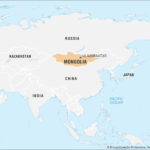Christopher Columbus, a name synonymous with the ‘discovery’ of the Americas, remains a figure of immense historical significance and ongoing debate. While his voyages undeniably reshaped the world, initiating European colonization of the ‘New World’, understanding his origins provides crucial context to his motivations and legacy. The question, “Where Is Christopher Columbus From?”, is more than just a simple biographical detail; it’s a gateway to understanding the man behind the expeditions.
Born Cristoforo Colombo in 1451, Columbus’s roots lie in the bustling seaport of Genoa, Italy. This vibrant city, nestled on the Ligurian coast, was then a powerful maritime republic, a hub of trade and seafaring expertise. Understanding Genoa’s influence is key to grasping Columbus’s early life and ambitions.
Genoa: Columbus’s Cradle of Seafaring
Genoa in the 15th century was not merely a city; it was a powerhouse. Its strategic location on the Italian peninsula made it a crucial center for Mediterranean trade, connecting Europe with the East. The Genoese were renowned for their maritime prowess, their ships traversing the seas carrying goods and establishing trade networks. This environment profoundly shaped young Columbus.
Born into a family of wool weavers, Columbus was immersed in the world of commerce and craftsmanship. However, the allure of the sea was undeniable in Genoa. From a young age, he was drawn to the harbor, witnessing ships depart and return from distant lands, laden with exotic goods and tales of adventure. This exposure ignited a passion for exploration and a desire to navigate the vast oceans.
It’s important to note that while Columbus is famously associated with Spain, his Italian heritage is undeniable. His early life in Genoa, the skills he acquired there, and the maritime culture he absorbed were foundational to his later voyages. He learned the art of navigation, shipbuilding, and trade within the Genoese maritime tradition, skills that would prove invaluable in his ambitious expeditions across the Atlantic.
From Genoa to the Ocean: Columbus’s Early Seafaring Career
Columbus didn’t remain confined to the wool weaving trade for long. By his early twenties, he was already an experienced sailor, navigating the Mediterranean and likely beyond. Details of his early voyages are somewhat scarce, but it’s known he participated in various trading expeditions, gaining practical experience in seamanship, cartography, and navigation.
An important turning point in Columbus’s life came in 1476 when he moved to Lisbon, Portugal. Portugal, at the time, was at the forefront of European exploration, actively seeking new sea routes to the East Indies by sailing around Africa. Lisbon provided Columbus with access to advanced navigational knowledge, cartographic resources, and a network of experienced mariners.
For many years in Lisbon, Columbus dedicated himself to his grand vision: reaching the East Indies by sailing westward across the Atlantic. He believed the world was smaller than commonly thought and that a westward route would be shorter and more efficient than the eastward route around Africa. This idea, though ultimately based on a miscalculation of the Earth’s circumference, became his driving ambition.
Seeking Patronage: From Portugal to Spain
Columbus spent years trying to secure funding for his audacious westward voyage. He initially sought support from the Portuguese monarchy, but his proposal was rejected. Undeterred, he turned to Spain. After years of persistent lobbying, he finally gained the backing of Queen Isabella I of Castile and King Ferdinand II of Aragon.
The Spanish monarchs, eager to expand their influence and wealth through trade, saw potential in Columbus’s plan, despite skepticism from their advisors. In 1492, they agreed to finance his expedition, a decision that would irrevocably alter the course of history.
It’s worth emphasizing that even while serving the Spanish crown, Columbus never forgot his Genoese origins. He retained his Italian language and maintained connections with his family in Genoa. His identity remained complex, a blend of his Genoese upbringing and his role as an explorer for Spain.
Columbus’s Legacy: A Complex Tapestry of Origins and Impact
Christopher Columbus’s legacy is multifaceted and often debated. While celebrated for centuries as a pioneering explorer who ‘discovered’ the New World, a more nuanced understanding acknowledges the devastating impact his voyages had on indigenous populations.
However, to understand Columbus, we must return to the question of his origins. Born in Genoa, shaped by its maritime culture, and driven by a vision forged in the age of exploration, Columbus was a product of his time and place. Understanding where Christopher Columbus was from – Genoa, Italy – is not just a matter of historical accuracy; it’s crucial to comprehending the forces that propelled him across the Atlantic and the complex legacy he left behind. His Genoese roots are an integral part of the Christopher Columbus story, adding depth and context to his extraordinary, and controversial, life.
By exploring his origins, we gain a richer appreciation of the man, his motivations, and the world that shaped him, moving beyond simplistic narratives and engaging with the complexities of history.

